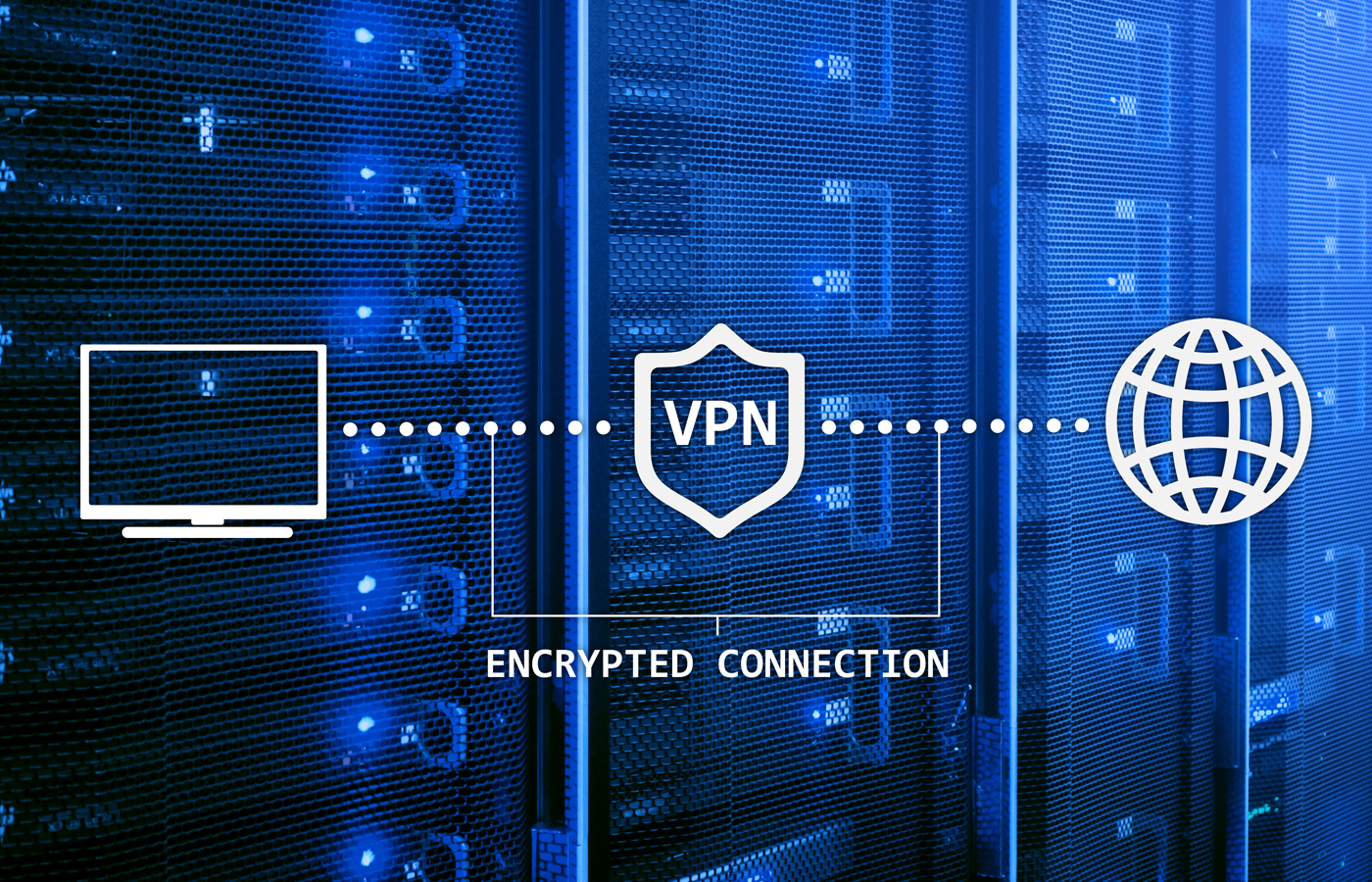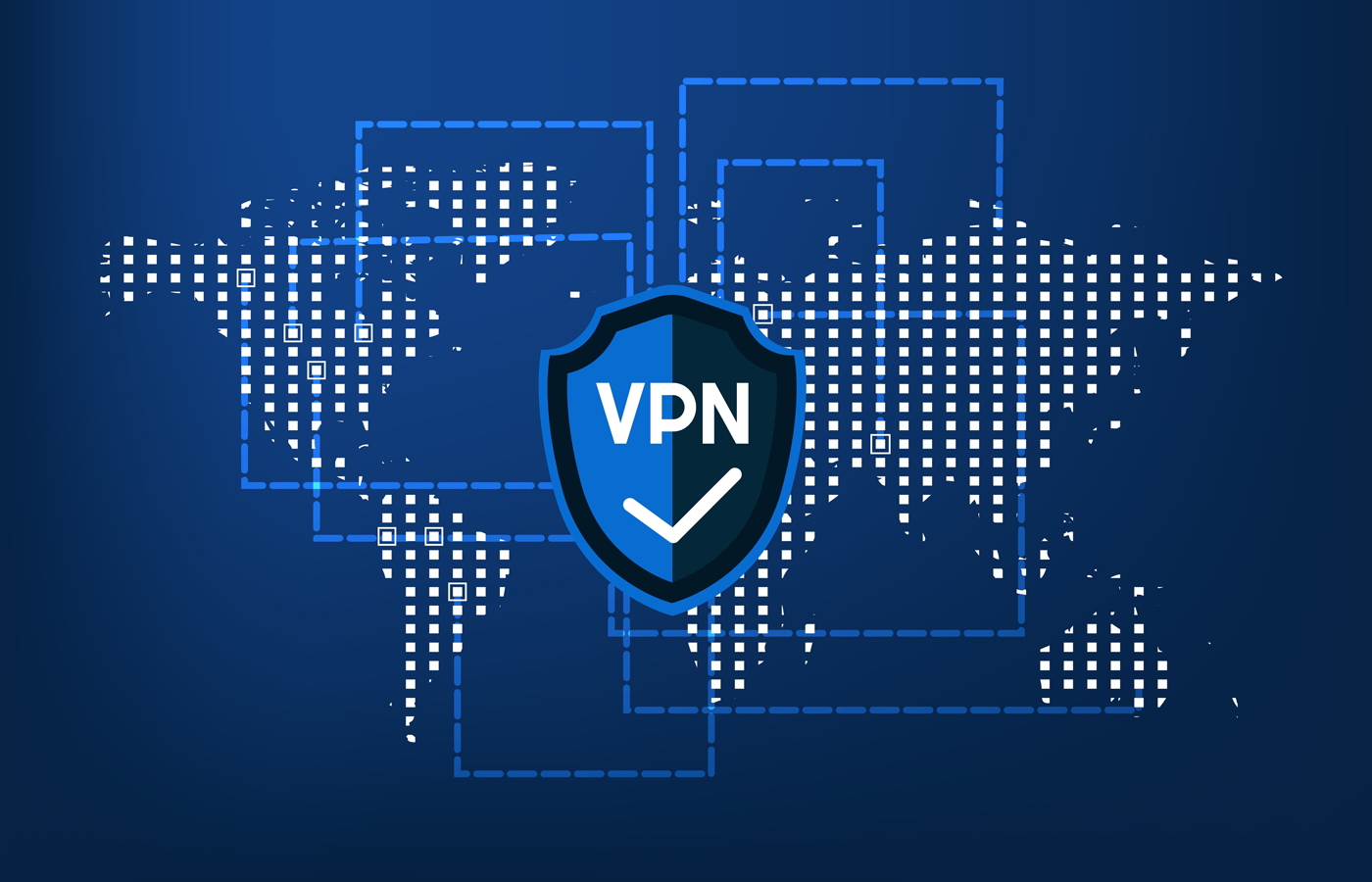Cybersecurity certifications provide third-party validation of a job candidate’s cybersecurity knowledge and experience. Candidates use the credibility provided by certificates to advance their careers, illustrate their capabilities, and enhance their networking opportunities. Human resources often uses certificates as minimum job requirements, and IT pros judge each other’s capabilities based upon the number and specific certificates earned.
The best certification depends upon a candidate’s experience, so we selected the best certificates for specific categories based on three specific stages in a career:
- Best Entry-Level Certificates: These certificates validate basic skills and help a candidate to qualify for their first cybersecurity job. Read more below.
- Best Advanced Certificates: These certificates confirm cybersecurity experience for established professionals and helps to advance careers. Read more below.
- Best Specialty Certificates: These certificates provide training or verify specialized knowledge of cybersecurity specialties needed for specific cybersecurity positions. Read more below.
Cybersecurity Certification Comparison Chart
IT and security professionals need different cybersecurity certifications at different points in their careers. Initially, entry-level certificates open opportunities to move into your first cybersecurity positions, but later advanced or specialty certifications will validate experience and open doors to even more opportunities.
| Certificate | Certification Test Pricing | Who It’s For |
|---|---|---|
| Entry-Level Certification | ||
| Security+ | $392 | IT professionals and students seeking proof of knowledge for cybersecurity employment |
| CC | Free | IT professionals and students that want to start cybersecurity certification |
| GSEC | $979 | Employed IT pros that want rigorous training for cybersecurity roles |
| Advanced-Career Certification | ||
| CISA | $575–$760 | Cybersecurity professionals with at least two years of cybersecurity job experience and seeking mid-career recognition |
| CISSP | $749 | Experienced professionals with at least four years’ cumulative experience in two or more areas of cybersecurity |
| C|EH | $100 application fee + $950–$1,199 for exam vouchers | Experienced professionals seeking to understand or validate experience in hacking tools and techniques |
| Specialty Certification | ||
| CySA+ | $392 | Experienced incident response and SOC analysts seeking specialist security analyst certification |
| CCSP | $249 | Experienced information security professionals with cloud experience seeking cloud security certification |
| CIPP | $550 | IT and cybersecurity professionals that need to handle regulated data |
Best Entry-Level Certificates
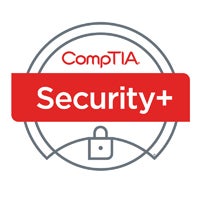
CompTIA Security+
Best Overall Entry-Level Certificate
CompTIA’s Security+ certification provides the maximum boost for potential employment for a reasonable investment. This certification is listed more frequently as a minimum requirement for jobs than any other entry-level certificate because it confirms knowledge across fundamental security topics including security architecture, threats, and vulnerabilities.
Cliff Timpson, sr. cyber IT security engineer at NASA Goddard Space Flight Center, earned his Security+ certification while working as an Information assurance manager for the US Army. “At the time, obtaining that certification helped me understand the broader scope of what we now know as cybersecurity. Solely relying on my technical skills limited me to certain roles, but when I gained a solid understanding of the strategic aspects, it opened many different doors for my career progression.”
Who Should Get This Certification?
Cybersecurity job seekers paying for their own certification will select this certification.
Exam Pricing & Format
- $392 exam fee, $784 exam + retake option
- 90-minute, 90-question proctored exam
- Certificate renewal requirement
- 50 education credits every three years
- $150 fee every three years
Exam Requirements
- No formal requirements
- CompTIA recommends that candidates possess basic IT knowledge for securing applications, networks, and devices; threat analysis and response; and risk management
Exam Prep
- Free study guide and practice questions are available
- Courses (not required):
- $545 self-paced study
- $205 CertMaster labs
- $205 CertMaster practice exam
- $2,499 10-day hands-on instructor-led training
Salary Range & Sample Job Listings
- Glassdoor estimated salary range: $47,000–$147,000
- Sample job listings:
- Cyber Security Specialist $83,000–$125,000
- Help Desk Technician $65,000–$75,000
- Systems Support Analyst $45,000–$66,000
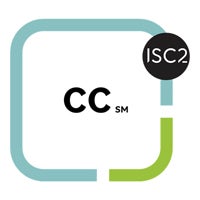
Certified in Cybersecurity (CC)
Best Entry-Level Certification for Learning Fundamentals
The CC certificate issued by the well-respected International Information System Security Certification Consortium (ISC2) provides free certification and a free self-guided online course. The course trains and the exam validates knowledge of basic cybersecurity fundamentals: security principles, business continuity, disaster recovery, incident response, access controls, network security, and security operations.
Candidates that pass the CC exam will gain confidence that can springboard success for other certifications. Mitch Rebello, IT manager of Technology Advice, obtained both the CC and the Security+ certifications. “The CC is an entry to certification in general and provides a good practice warmup for the Security+ exam.”
Who Should Get This Certification?
Anyone interested in a career in cybersecurity should pursue the entry-level CC certification first. It provides training and baseline knowledge useful for both entry-level jobs and other certificates.
Exam Pricing & Format
- Free exam
- Two-hour, 100-question proctored exam
- Certificate renewal requirement
- Annual $50 maintenance fee
Exam Requirements
- No formal requirements
- ISC2 recommends that candidates possess basic IT knowledge
Exam Prep
- Free self-paced online course
- $19.95 eTextbook
- $804 guided live online instruction, exam retake, and first year of maintenance
Salary Range & Sample Job Listings
- Glassdoor estimated salary range of $87,000–$99,000
- Sample job listings:
- Information Assurance/Cybersecurity Engineer/Analyst II $68,000–$114,000
- Information Security Analyst II $69,000–$114,000
- Network Engineer $63,000–$111,000
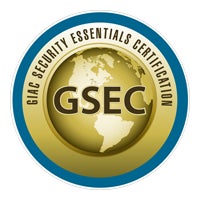
GIAC Security Essentials Certification (GSEC)
Best for Deep Learning of Cybersecurity Fundamentals
GSEC will typically be paired with a rigorous SANS Institute course by IT professionals that need more cybersecurity knowledge. The SANS course provides in-depth hands-on training on key security concepts and principles such as defense in depth, basic cryptography, and incident handling.
Most self-funded certification candidates will balk at nearly $10,000 in fees and course materials, but many companies invest in this training to build up their internal resources. Highly respected in the IT industry, the GSEC certification is required by thousands of job postings for potential candidates.
Who Should Get This Certification?
IT professionals seeking a strong foundation in cybersecurity should invest in GSEC training and accreditation.
Exam Pricing & Format
- $979 exam fee, $879 retake fee
- 4–5 hour, 106–108 question proctored open book exam
- Certificate renewal requirement
- 32 education credits every four years
- $479 fee every four years
Exam Requirements
- No formal requirements
- Some certificate holders note that passing typically requires the SANS training course
Exam Prep
- $399 practice test
- $8,525 course SANS SEC401: Security Essentials – Network, Endpoint and Cloud
Salary Range & Sample Job Listings
- Glassdoor estimated salary range of $54,000–$155,000
- Sample job listings:
- CSSP Auditor $130,000–$160,000
- Information Security Analyst $55,000–$81,000
- SIEM Engineer $75,000–$110,000
Best Advanced Certificates
Cybersecurity professionals pursue advanced security certifications that validate deeper cybersecurity knowledge acquired through experience. These certifications, such as CISA, CISSP, and C|EH, require several years of verifiable employment and enable candidates to pursue advanced-career positions with more responsibility and pay.
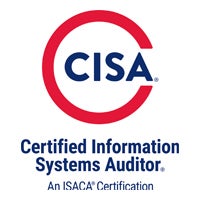
Certified Information Systems Auditor (CISA)
Best for Mid-Career Certification
The CISA certification offered by ISACA verifies experience for IT and cybersecurity professionals with work experience in the protection of information assets and information systems auditing processes. Since education can satisfy up to three of the five years of required work experience, this will often be the first certificate obtained by cybersecurity pros.
The exam tests technical and operations management capabilities in information systems auditing processes, acquisition, development, implementation, and asset protection. Candidates must also demonstrate knowledge of related IT governance and management concepts, especially information systems operations and business resilience.
Who Should Get This Certification?
Experienced IT and cybersecurity professionals use CISA certification to ratify their experience and improve career prospects.
Exam Pricing & Format
- $575 for ISACA members + $145 ISACA membership fee + local chapter dues
- $760 exam fee for non-members
- Four-hour, 150-question proctored exam
- Certificate renewal requirement
- 20 minimum education credits per year, 120 education credits every three years
- Annual $85 annual maintenance fee ($45 for ISACA members)
Exam Requirements
- Five years of related work experience
- Waive up to three years of experience with college degrees
Exam Prep
- Free practice quiz
- $399 CISA review questions subscription ($299 for ISACA members)
- $895 online review course ($795 for ISACA members)
Salary Range & Sample Job Listings
- Glassdoor estimated salary range of $61,000–$175,0000
- Sample job listings:
- Field Cyber Risk Consultant $140,000–$250,000
- Information Assurance Analyst $61,000–$90,000
- IT Security Engineer $90,000–$95,000
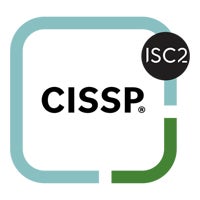
Certified Information Systems Security Professional (CISSP)
Best Certificate to Validate Advanced Experience
The CISSP certification by ISC2 stands as the most required certificate for cybersecurity job listings. Employers and peers understand that candidates need extensive experience to obtain this certification, including years of experience in multiple security disciplines.
The CISSP exam confirms deep knowledge in information security topics and tests capabilities to perform tasks as well as managing processes. The eight domains of knowledge tested include security and risk management, asset security, security architecture and engineering, communication and network security, identity and access management, security assessment and testing, security operations, and software development security.
Who Should Get This Certification?
Experienced cybersecurity professionals use the CISSP certification for career advancement and for the confidence the certification provides to others. For example, clients will be reassured of a certain standard of knowledge and baseline capabilities when contracting with a consultant bearing a CISSP certificate.
Exam Pricing & Format
- $749 exam fee
- Four-hour, 125–175 question exam with computerized adaptive testing and proctor
- Certificate renewal requirement
- $125 annual maintenance fee
- 120 education credits every three years
Exam Requirements
- At least five years of verifiable paid and full-time experience in two or more cybersecurity domains
- Up to one year may be satisfied by credentials or college degrees in computer science, information technology, or related fields
- Candidates capable of passing the test without the required experience earn an Associate of ISC2 designation until they earn sufficient experience
Exam Prep
- Free flashcards, mobile phone app, study group forum
- $995 self-paced self-study course
- $2,880 five-day online instructor-led training
Salary Range & Sample Job Listings
- Glassdoor estimated salary range of $66,000–$176,0000
- Sample job listings:
- Cyber Security Specialist $83,000–$125,000
- IS Network Administrator $60,000–$92,000
- Principal System Administrator $98,000–$146,000
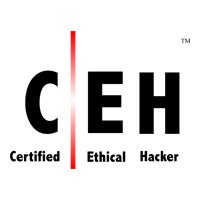
Certified Ethical Hacker (C|EH)
Best for Hacking Fundamentals Certification
Job listings use the EC-Council’s C|EH (aka: CEH) as a requirement more than any other penetration testing certificate. The CEH exam validates experience with over 500 potential attack techniques, over 3,500 hacking tools, and knowledge of 20 different hacking domains.
Basic C|EH certification requires a knowledge-based test, but the EC-Council also offers a companion C|EH Practical exam that tests skills and abilities. A candidate that passes both exams is certified as a C|EH Master.
Who Should Get This Certification?
IT professionals seek C|EH certification to advance their career, shift into penetration testing jobs, and to learn hacking techniques.
Exam Pricing & Format
- C|EH Knowledge Exam
- $100 non-refundable eligibility application fee
- $1,199 Pearson VUE or $950 ECC proctored exam voucher
- Four-hour, 125-question proctored exam
- C|EH Practical Exam
- $550 exam fee
- Six-hour, 20-challenge proctored exam
- Certificate renewal requirement
- 120 education credits every three years
- $80 annual maintenance fee
Exam Requirements
- Recommended to have a minimum of two years of IT security experience
- Applicants can bypass experience requirements through official or authorized training
Exam Prep
- $149 CEH Exam Prep Guide
- $850 e-Courseware
- Candidates are encouraged to consider a training course
- Three levels of training: C|EH, C|EH Pro, C|EH Elite
- All training courses include an exam voucher and courseware
- Courses range between $2,199–$3,499 depending on the desired options
- Accredited training center prices may vary
- Discounts may be available for students and military personnel.
Salary Range & Sample Job Listings
- Glassdoor estimated salary range of $62,000–$165,000
- Sample job listings:
- Cybersecurity Operations Shift Lead $51,000–$80,000
- Incident Response Analyst $64,000–$93,000
- Systems Security Engineer $86,000–$120,000
Best Specialty Certificates
Cybersecurity professionals seeking to pursue or substantiate cybersecurity specialization will seek specialty certification. While many specializations exist in cybersecurity, security analysis, cloud security, and data privacy provide the most job listings for future opportunities.
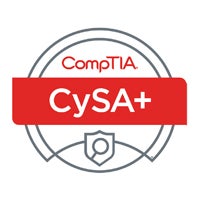
Cybersecurity Analyst (CySA+)
Best for Specialized Security Analyst Certification
Security pros select CompTIA’s CySA+ certification to confirm experience and knowledge necessary for roles in security analysis, threat monitoring, managed IT security service provider (MSSPs) consulting, and security operations centers (SOC) staffing. The CySA+ is included more frequently in job listings and contains performance-based questions that test more than cursory knowledge.
CompTIA worked with the US Department of Defense, US Navy, Amazon Web Services, VISA, and John Hopkins’ Applied Physics Laboratory to develop the CySA+ exam and materials. The exam tests working knowledge of security operations tools and techniques; vulnerability assessment, prioritization, and mitigation; incident response analysis and activities; and effective communication or reporting to stakeholders of action plans, escalation, and metrics.
Who Should Get This Certification?
IT professionals that want to work as security analysts will seek the CySA+ certification.
Exam Pricing & Format
- $392 exam fee
- 165-minute, 85-question proctored exam
- Certificate renewal requirement
- 60 continuing education credits every three years
- $50 annual fee
Exam Requirements
- Four years of hands-on incident response or security operations center (SOC) analyst experience
Exam Prep
- $205 CertMaster practice questions
- $164–$174 for study guides
- Bundle packages available
- $565 for exam + self-paced guide
- $720 for exam + self-paced guide + certification practice
- Extensive instruction options
- $545 CertMaster self-based instruction
- $205 CertMaster Labs for hands-on practice
- $2,499 instructor-led online training
- $977 bundle CertMaster instruction + labs + exam
- $1,080 bundle CertMaster instruction + labs + practice + exam
- $2,499 bundle instructor-led training + CertMaster instruction + labs + practice + exam
Salary Range & Sample Job Listings
- Glassdoor estimated salary range of $51,000–$145,000
- Sample job listings:
- Cybersecurity Product Engineer $95,000–$115,000
- Senior Test Engineer $92,000–$111,000
- Sr. Security Analyst $82,000–$99,000
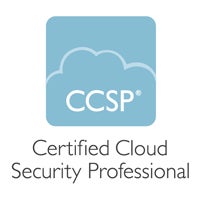
Certified Cloud Security Professional (CCSP)
Best for Cloud Security Certification
ISC2’s CCSP exam offers a vendor-agnostic certification that reflects the increasing need and universal demand for cloud security certification. More jobs include CCSP than any other cloud security certificates, including vendor-specific certificates.
CCSP certification verifies a broad understanding of cloud security universal to all cloud environments. The exam confirms knowledge of cloud-specific architecture, design, data security, platform security, infrastructure security, application security, security operations, legal issues, risk, and compliance.
Who Should Get This Certification?
IT security professionals will seek CCSP to validate cross-platform cloud security experience.
Exam Pricing & Format
- $249 exam fee
- Four-hour, 150-question proctored exam
- Certificate renewal requirement
- $125 annual maintenance fee (for all ISC2 credentials for members)
- Renewal requires 90 continuing education credits every three years
Exam Requirements
- Five cumulative years of work experience
- Three must be in information security
- One or more years must be in at least one of the domains tested on the exam (cloud data security, etc.)
Exam Prep
- Free flashcards, mobile phone app, and study group forum
- $920 self-paced self-study course, $2,880 five-day online instructor-led training
Salary Range & Sample Job Listings
- Glassdoor estimated salary range of $43,000–$176,000
- Sample job listings:
- Azure AD Administrator $110,000
- Network Security Engineer $130,000–$140,000
- Sr. Security Engineer $120,000–$128,000
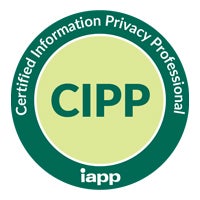
Certificated Information Privacy Professional (CIPP)
Best Data Analyst Privacy Certification
The CIPP certification from the International Association of Privacy Professionals (IAPP) verifies deep and specialized knowledge of data privacy and protection laws and principles. The expanding use of data to inform business decisions and train artificial intelligence engines fuels the need for experts in this specialty.
The IAPP offers five exam versions focused on specific regulations and requirements for Asia, Canada, Europe, the US, and the US government. For example, the CIPP/US certification ensures working knowledge of US privacy regulation, workplace privacy, state privacy laws, government or court access to private-sector information, and limits on private sector collection and data use.
Who Should Get This Certification?
IT professionals verify data privacy knowledge and shift to data analysis career paths with CIPP certification.
Exam Pricing & Forma
- $550 exam fee
- 2.5-hour, 90-question proctored exam
- Certificate renewal requirement
- 20 continuing education credits every two years
- $250 fee every two years
Exam Requirements
- No education or job experience requirements
Exam Prep
- $55 practice exam
- $1,195 online course
Salary Range & Sample Job Listings
- Glassdoor estimated salary range of $52,000–$215,000
- Sample job listings:
- Data Protection & Compliance Analyst $51,000–$84,000
- Director, Information Security & Compliance $140,000–$165,000
- Sr. Analyst Information Governance & Data Protection $93,000–$140,000
How We Evaluated the Best Cybersecurity Certifications
To evaluate the best entry-level, advanced, and specialized cybersecurity certifications, we examined the broader market and considered the qualifications of more than 30 different certifications. We chose the top three certifications in each category that provided effective value for the price, current job opportunities, and prospects for strong future opportunities.
Price & Value
To evaluate price and value, we considered that price always matters, but the lowest cost options don’t always deliver opportunities. Coursera offers practical education at a low monthly subscription price, but does not yet move the needle for job opportunities. At the other end of the spectrum, although GSEC training may exceed the knowledge required for competing entry-level CC or Security+ exams, its high cost limits its value to self-funded applicants.
Current Opportunities
To evaluate current opportunities, we required active job placements on popular job boards such as LinkedIn, Monster, Indeed, Simply Hired, Career Builder, Dice, and more. This criteria roughly ranked all certificates and eliminated many narrowly focused vendor-specific certifications or university continuing education programs that provide educational value but are not used by HR professionals to screen candidates.
Future Opportunities
To consider future opportunities we sought upwards trends in job offerings. Cybersecurity contains many niches, but older specialties such as digital forensics don’t have the job opportunities now even though they used to be in-demand. The specialties we selected offer thousands of job openings using that specialty certification as a criteria and continue to show a rising demand curve for employment.
Frequently Asked Questions (FAQs)
How Do You Prepare for Cybersecurity Certification?
To get ready for cybersecurity certification, first study the test requirements. Do you have enough basic knowledge to pass the exam without further instruction? Inexpensive study guides will provide sufficient information for knowledgeable or experienced students, but others may need to invest in more expansive self-study or instructor-guided coursework.
Most certification programs directly offer low-cost study guides, practice tests, and courses through their website. A quick search will also locate a wealth of official and unofficial third-party test-preparation resources from Coursera, Cybrary, ITPro.tv, Training Camp, Udemy, and more.
Which Cybersecurity Certification Should I Get First?
If you’re just starting out, first acquire one or more of the three entry-level certifications to land that initial security job. After 2–5 years of work in a security role, then consider at least one of the advanced career or specialty cybersecurity certifications.
How Do I Know Which Advanced or Specialty Certification Is Right For Me?
To identify the best advanced or specialty certification for you, consider your desired career path and interests. Next, check job listings to see the certifications required for the jobs you want over the next 3–10 years.
Still not sure? Consider checking the LinkedIn profiles for admired coworkers, peers, cybersecurity podcasters, or prominent X personalities for their earned certifications. Their certifications will help to illustrate the most respected certifications that fit your interests and validate skills you value.
Can You Get a Cybersecurity Job with Just Certifications?
Certifications verify knowledge or experience, but must combine with other factors to land a job. The basic requirements for employment also include an appropriate job history for the position, effective communication during interviews, and a good fit for the hiring organization’s needs.
What Are Education Credits?
Education credits reflect the industry requirement to remain current on technology, tactics, and trends. These credits will be named differently between different credentialing organizations, although the most common name is continuing professional education (CPE) credits.
Different organizations list different standards for satisfying education credits. Some organizations consider obligations fulfilled if the candidate passes other credential exams. Some credits can be satisfied by job experience, convention sessions, volunteer hours, and more. Check each credentialing organization’s renewal requirements for details.
Bottom Line: A.B.C. (Always Be Credentialing)
A career path first requires knowledge and experience, but credentials provide stepping stones that add credibility to a resume or application. Internal candidates often demonstrate skills directly to employers, but outside candidates need certificates for any HR consideration. An advancing career requires multiple credentials, so start today with the most relevant credential and then plan the next ones to pursue.
Learn about other key steps to take beyond certification when getting started in a cybersecurity career.







